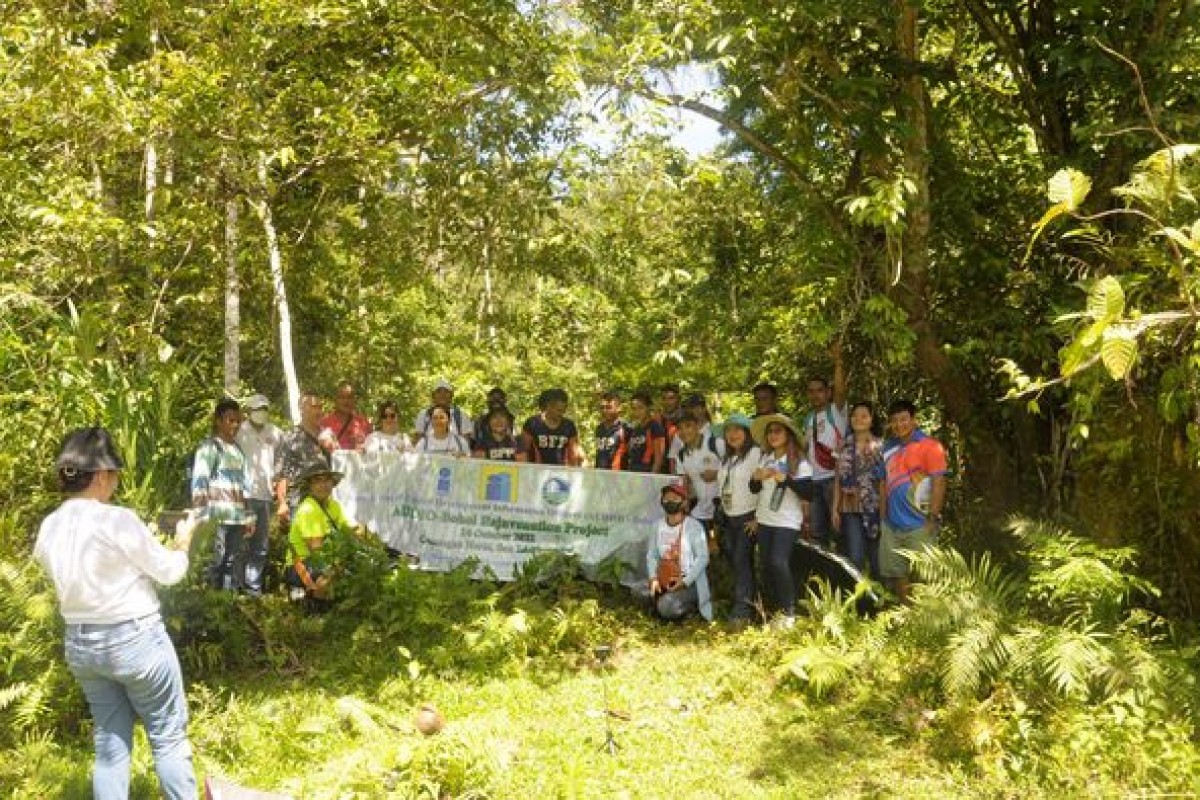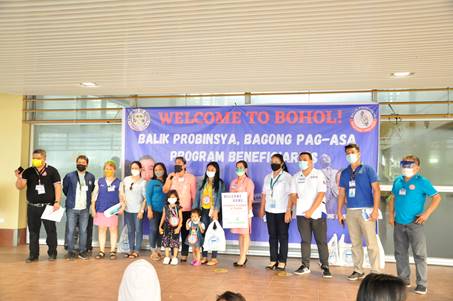TAGBILARAN CITY, Bohol, Nov. 1 (PIA) -- Responding to the call to help recover the lost forest cover in Bohol in the last centuries, members of the Association of United Development Information Officers (AUDIO) sought the help of the Department of Environment and Natural Resources (DENR) to facilitate the identification of the area suitable for their bamboo rejuvenation project.
Tapping the Cangsague Sur and Norte Bamboo Planters Multi-Purpose Cooperative (CANSBAPMUCO) in San Isidro, DENR had the host cooperative of farmers and forest caretakers orient the AUDIO members on the proper way of planting bamboo to ensure its survivability.
DENR Forest Extension Officers Francisco Gupita and Juliet Tadle, along with CANSBAPMUCO Chairman Marcelo Tangcogo, took turns in emphasizing the proper way of planting bamboo, the world’s fastest growing grass, with more carbon capturing capacity than most trees.
Both Cansague Norte and Sur rely on hand-crafted manufacture of bamboo slat weaves called amakan from the bamboos.
“This is our humble share in the global responsibility to facilitate the dampening of the effects of climate change that has already manifested itself in the higher ocean water rise which has forced residents of low-lying islands to resettle in the mainland as the sea water has reached their homes in these islands,” AUDIO President Maria Lydia Bantugan shared.
Other than its excellent carbon sequestration properties and its usability to the people who make amakan and whose houses are proof of the bamboo’s versatility, Gupita said these plants have extensive root systems that are perfect for soil erosion control and acts as natural creek or river embankment systems.
The said activity was also an opportunity for the government information officers to learn more about CANSBAPMUCO, a multi-awarded DENR-organized and Securities Exchange Commission-accredited cooperative.
Under the National Greening Program (NGP) on its first year of implementation, CANSBAPMUCO covered 10 hectares by planting them with bamboo, with a contract with DENR.
Each contract would also entail putting up a seedling nursery establishment and a plantation establishment where the DENR pays for every seedling planted, and another for every hectare of plantation established.
By 2012, the group shifted to fruit trees in another contract to diversify and spin off from the usual forest trees, according to Gupita who has been monitoring the cooperative’s contracted sites.
In 2014, the cooperative signed a contract for 50 hectares of rattan, another DENR priority replanting program to address the dwindling supply for furniture and other domestic uses.
As the local government unit replanted 72 hectares of rattan in 2016, CANSBAPMUCO also joined in with 10 hectares of fruit trees, 20 hectares of forest timber, and 70 hectares more of rattan.
In 2017, the group planted 30 hectares of bamboo and another 30 hectares by the following year.
In 2020, they ventured into the forest edges to plant 17 hectares of bamboo and another 20 hectares of rattan.
In the same year, the cooperative signed another contract for 17 hectares of bamboo and another 30 hectares of rattan, according to Gupita.
They have been among the most successful reforestation cooperatives as they have already harvested their bamboo forests in 2011 to set up the materials for a bamboo boardwalk in Tubigon town. (RAHC/PIA7 Bohol)



